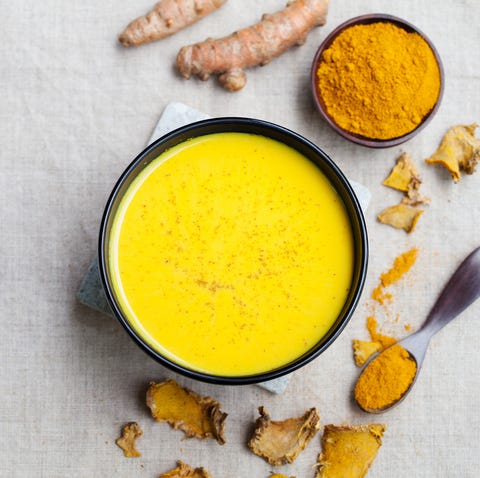Chris Mohr, PhD, RD is a member of the Men’s Health Advisory Board.
According the National Coffee Association on average, Americans drink more than 400 million cups of coffee daily. Yes, daily.
But that’s a good thing. Coffee has more than 1,000 chemical compounds, many of which have antioxidant and anti-inflammatory benefits. Dive into the research and you’ll find that a two- to five-cup-a-day habit may not only help you live longer, but may also lower your risk of dying from cardiovascular disease, developing type 2 diabetes, liver disease, Parkinson’s disease, depression, and suicide.
True, if you drink too much of the stuff you may experience insomnia, anxiety, tremors, and heart palpitations. And, there are plenty of not-so-healthy coffee drinks out there (I mean, caramel in your coffee with whipped cream on top, people? Really?). But there’s another trend emerging in the world of coffee: to take a drink that’s already healthful and make it, well, more healthful.
But do any of these new “health-fied” coffee drinks pass the dietitian sip test?
MCT oil
This stuff grew in popularity a few years ago when Bulletproof Coffee became a thing. MCT oil is made of a type a fat called “medium-chain triglycerides.” You’ll find these triglycerides in coconut oil, palm kernel oil, and dairy products.
While there’s promising evidence that shows MCTs could be good for your brain function and memory, have the potential to help with endurance and weight loss, and could play a role in lowering cholesterol and blood sugar levels, all of the research is very preliminary.
So what’s the takeaway? This is a trend you can skip, at least until stronger science emerges. Eat your breakfast fats instead: avocado toast with smoked salmon, eggs, cottage cheese.
“Superfood” creamers

AnnaPustynnikova
Yes, you can now take your coffee and dump in creamers with collagen or turmeric.
The collagen doesn’t impress me in terms of its protein (10 grams per two scoops) and collagen is one of the cheapest forms of protein available. Some “experts” on the Internet will tell you collagen makes your skin look great, but the science on that claim is iffy.
By comparison, some turmeric creamers, specifically Laird Superfood Creamer Turmeric, does pack a solid dose of turmeric per serving. Turmeric is a potentially ant-inflammatory, but only at decent dosages. I’ll even mix this in with some unsweetened vanilla almond milk in the afternoon to warm up—caffeine free—on a cold day.
Brain-boosting coffee
Caffeine itself may boost brain health and functionality. Some companies are trying to improve on what is already awesome. Kimera Koffee offers “coffee with cognitive enhancers” that boost energy levels, optimize focus, and enhance athletic performance. The problem: Kimera hides the actual ingredients within a “proprietary list,” meaning you have no idea how much of anything is in the product. For now, stick with caffeine and get your other brain boosting benefits from sleep, exercise, and quality nutrition.
Mushroom coffee
Does the idea of dark roast coffee beans blended with lion’s mane mushrooms excite you? No? Well, mushroom coffee is catching on, in part promoted by purported health benefits (more focus, more energy, etc.). As with MCT oil, the scientific research just isn’t there yet. If you like the taste and convenience of this stuff, go for it. Otherwise stick to your traditional cup.
Source: Read Full Article